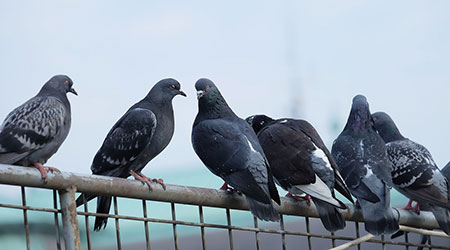Queen Elizabeth University Hospital in Glasgow has spent 450,000 £ ($545,236) to kill pests after deaths linked to pigeon droppings, according to an article on the Daily Record website.
Pest teams at the hospital have had to shoot pigeons, install anti-bird spikes and netting and use chemicals to kill mold and fungus since January.
Combatting vermin at the hospital accounts for more than half of NHS Greater Glasgow and Clyde’s entire spend on pest control for all of its facilities in Glasgow, Renfrewshire, Inverclyde and West Dunbartonshire.
Two patients at the hospital, a 10-year-old boy and a 73-year-old woman, were being treated for the fungal infection cryptococcus before they died.

 Seeking Standards for Microbial Loads in Healthcare Facilities
Seeking Standards for Microbial Loads in Healthcare Facilities UCR Health Unveils Plans for Major Expansion
UCR Health Unveils Plans for Major Expansion High-Performance Windows Support Safety at UW Medicine's New Behavioral Health Center
High-Performance Windows Support Safety at UW Medicine's New Behavioral Health Center Central Maine Healthcare Dealing with IT System Outage
Central Maine Healthcare Dealing with IT System Outage Kaiser Permanente Opens Newly Expanded Everett Medical Center
Kaiser Permanente Opens Newly Expanded Everett Medical Center